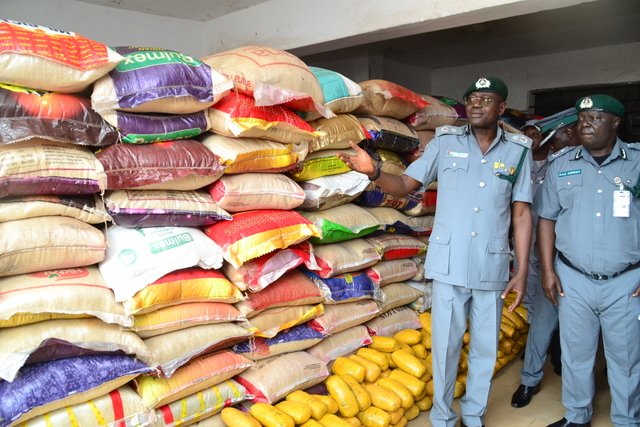In an effort to support agricultural production, the Nigeria Customs Service has intensified the fight against the smuggling of foreign rice and other prohibited items into the country.
In a discussion with newsmen on Tuesday, the spokesperson of the Nigeria Customs Service, CSC Abdullahi Maiwada, said the service between May 2022 to May 2023 made 206, 835 bags of rice worth N4, 731, 285, 707 Billion were impounded from 1, 745 anti-smuggling raids.
In a further breakdown, he state that the NCS anti-smuggling operatives succeeded in seizing 3,744 bags in 72 raids in March while 6,585 bags in 75 raids were conducted in April 2023.
“We are making tremendous progress in our various operations not only at the land borders but also in the seaports and airports. I strongly believe relevant stakeholders in the sector can also testify to our efforts,” Maiwada added.
In March 2023, the Nigeria Customs Service, Ogun 1 Area Command intercepted 6,743 bags of smuggled foreign parboiled rice of 50kg each, equivalent to 11 trailer loads.
The Area Controller, Bamidele Makinde, said, “relentless anti-smuggling campaign of the command has continued to improve the seizure profile.
While assuring business owners of his continuous support in all aspects of their trading activities, he urged them to avoid illicit trades that could negatively affect the economy and tarnish their reputation.
He warned recalcitrant and would-be smugglers to steer clear of smuggling activities, saying anyone caught in the act would be made to face the full weight of the law.
Statistics from world rice production shows that in 2018, out of the 14.6 million metric tonnes of paddy produced annually on 7.3 million hectares of land in Africa, Nigeria’s production rose from 3.7 million tonnes in 2017 to 4.0 million metric tonnes in 2018.
According to another report in 2020, through the anchor borrower’s scheme, rice production in Nigeria hit eight million metric tonnes, with the nation aiming at 18 million tonnes by 2023.


